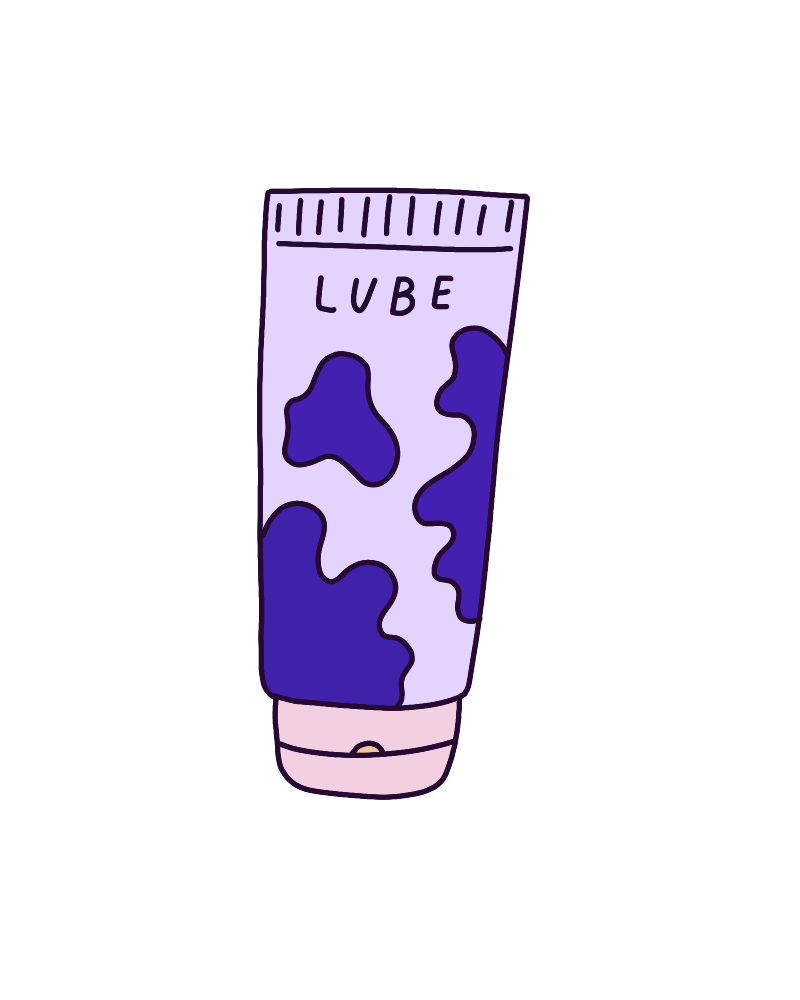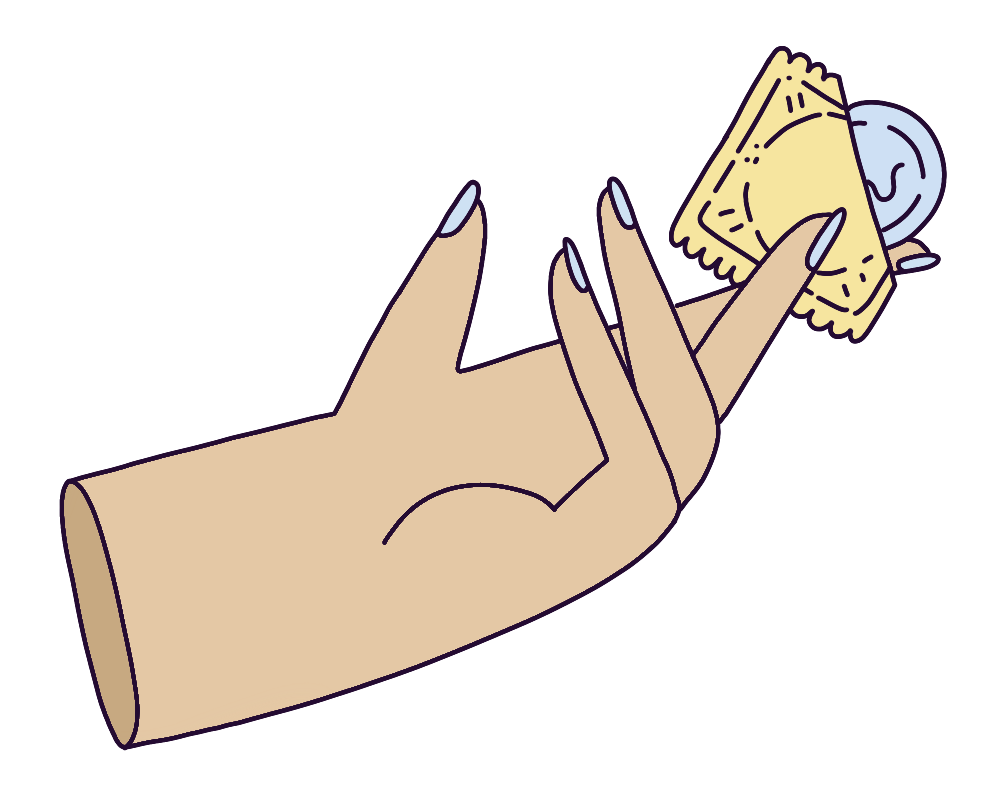Safer sex and STI prevention
Using a condom is one of the most effective ways of preventing STI transmission during sex.

How are STIs transmitted?
What is the best way to prevent STI transmission?
Using condoms
The best way to prevent STI transmission is to use a
What about lube?
Any
If you use a water-based lubricant, avoid ones that contain glycerin, as glycerin can contribute to vaginal yeast infections.
⚠️ Important!A different condom should be used for each different partner or toy. A different condom should also be used if penetrating different parts of your same partner's body. For example, if you are switching from anal to vaginal penetration, use a different condom.
If a condom falls off during sex, don't put it back on. It’s important to use a new condom, as the person’s sexual fluids will still be present in the first condom.
Each condom can only be used only once, and should not be re-used.

How do I use a condom?
What else can I do to reduce my risk of STIs?
Other safe sex materials include:
Dental dams - Gloves (for example, for fingering)
If you use sex toys, be sure to clean them after every use. Toys can be cleaned with antibacterial soap (hand soap) and warm water.
Does douching prevent STIs?
Short answer: no.
Vaginal douching
Vaginal douching involves washing the inside of the vagina with water or another cleansing solution. It is not effective at preventing or getting rid of STIs - in fact, it can actually increase your risk of getting an STI or make an infection worse. Douching after penis in vagina sex also does not prevent pregnancy. In fact, vaginal douching can be harmful and is not recommended.
You don’t need to clean the inside of your vagina. A great thing about vaginas is that they are self-cleaning, and have a natural balance of healthy bacteria and pH levels. Douching can throw off this balance and cause an overgrowth of some
It’s totally normal to have some clear or creamy discharge and scent from your vagina. If your discharge or smell changes or if you are concerned about your vagina’s health, speak to your GP or visit your local Sexual Health Clinic.
Anal douching
Anal douching involves washing the inside of your anus with water or another cleansing solution. Some people do this to feel more comfortable in preparation for anal sex. But douching is not actually necessary, and in the longer term or if done too often, anal douching can affect the lining of your anus, and can increase the risk of transmission of STIs.
There’s other things you can do to feel comfortable before anal sex, like going to the bathroom, having a shower or increasing the fibre in your diet so that you feel ‘clean’ and ready for sex. And remember: real sex can be messy and awkward sometimes - poop happens, and that’s ok!
If you do prefer to anal douche, it’s important to stagger these out, and not douche too often. Don’t use anything other than water to douche. For more info about how to anal douche safely, read more here and here .
What types of sex can I have without worrying about using condoms?
The first question to ask is what is meant by “worrying about using condoms”. For example, some people with a penis don’t like wearing condoms because they are afraid of losing their erection, or they might think it doesn’t feel as good to use a condom. If they have a latex allergy, then they can use another type of condom, such as polyurethane condoms.
On the other hand, some people with a penis don’t like wearing condoms because they are afraid of losing their erection, or they might think it doesn’t feel as good to use a condom. If this is true for you or your partner, then it's safer to experiment with other types of sex, rather than just continuing with penetrative sex while feeling unsafe.
Different sexual activities present different risks for different STIs. However, there are some sexual activities that you can enjoy without worrying about STIs, as these may not involve direct contact with sexual fluids. These may include:
- Solo or mutual masturbation
- Giving and receiving massage
🧐 Is watching porn safer sex?Well, there is no risk of STIs simply from just watching porn.
However, porn can portray sex that is a higher risk for STI transmission (like penetrative sex without a condom, or sex with multiple partners of unknown STI status). Professional porn performers can be at a high risk of STIs and you don’t see it on screen, but they get checked very regularly, and usually aren’t allowed to perform without a lot of medical certificates.
If you plan on watching porn with a partner, do discuss your boundaries and desires with one another beforehand.
In summary
If you are sexually active, it’s important to practice safer sex, such as by using a barrier method (like condoms), as the best way to prevent STI transmission. You and your partner can also get STI tested and treated, if necessary, so that you can feel safer with one another. There are also other forms of physical intimacy that don’t present a risk for STI transmission.
Help us improve this info by letting us know how you found it.
Start
STI testing and treatment
